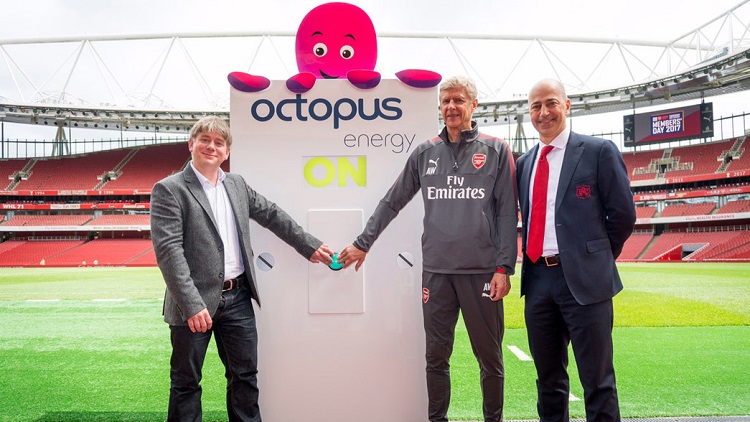Arsenal FC, fourth-place Premier League specialists in English soccer, have this week announced that their home ground – the Emirates Stadium – is now 100% supplied by renewable energy following a fruitful partnership with Octopus Energy.
The London-based soccer giants have become the first Premier League club to make the switch to fully green energy, sourcing all of its electricity from Octopus Energy, which has a U.K. network of 154 solar farms and additional anaerobic digestion sites that have enabled Arsenal to offset its annual CO2 emissions by 2.32 million kg – the equivalent of 580 fans’ annual carbon footprint.
The Emirates Stadium also has a water supply that is recycled, while all food waste makes its way back to Octopus Energy’s anaerobic digestion plants.
Popular content
Ivan Gazidis, the chief executive of Arsenal, said: “It is important we all take steps in this area and I am pleased that we have switched to green energy as a result of our partnership with Octopus Energy.”
Solar and soccer have a long, if disjointed, history. The most high profile convergence of the two came in 2010 when Chinese solar giant Yingli was a leading sponsor of the World Cup held in South Africa. Since then, the most obvious synergy has been the installation of solar panels at soccer stadiums, most notably the Stade de Suisse in Bern, Switzerland (Kyocera), the Hague Stadium in the Netherlands (Kyocera), the Weser Stadion in Bremen, and a handful of stadiums in Brazil (Yingli and Neoenergia).
This content is protected by copyright and may not be reused. If you want to cooperate with us and would like to reuse some of our content, please contact: editors@pv-magazine.com.


1 comment
By submitting this form you agree to pv magazine using your data for the purposes of publishing your comment.
Your personal data will only be disclosed or otherwise transmitted to third parties for the purposes of spam filtering or if this is necessary for technical maintenance of the website. Any other transfer to third parties will not take place unless this is justified on the basis of applicable data protection regulations or if pv magazine is legally obliged to do so.
You may revoke this consent at any time with effect for the future, in which case your personal data will be deleted immediately. Otherwise, your data will be deleted if pv magazine has processed your request or the purpose of data storage is fulfilled.
Further information on data privacy can be found in our Data Protection Policy.